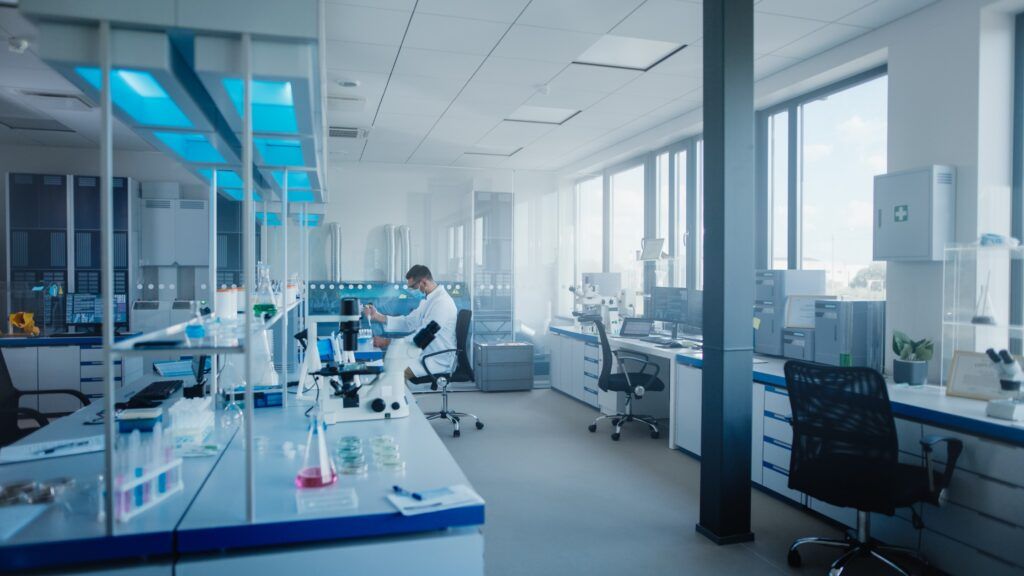In the vast scientific research arena, ensuring a controlled and stable environment plays a crucial role in the execution and success of experiments. Among the various tools employed within laboratories, incubators are instrumental due to their ability to create and maintain these controlled conditions. In this article, we delve into the important role played by laboratory incubators in scientific research.
Laboratory incubators are specialized enclosed devices that provide a precise, temperature-controlled environment for the growth and study of microbial cultures or cell cultures. They aim to maintain optimal temperature, humidity, and gaseous content necessary for specific experimental and procedural requirements. Laboratory incubators can broadly be classified into types including bacteriological incubators, biochemical incubators, and cooled incubators, among others.
Different types of Laboratory Incubators
Laboratory incubators come in various types, suitable for different research environments and tasks. Some of the most common types are:
- Standard or general-purpose incubator: One of the most widely utilized incubators in the lab is the standard or general-purpose incubator. This tool offers regulated environmental conditions such as temperature, humidity, and CO2, ensuring a safe, controlled, and contaminant-free environment. Its reliability and efficiency make it an ideal choice for cell and tissue culture work. By providing stable, consistent conditions, this incubator allows scientists to conduct their research with fewer variables that could potentially impact their results.
- Refrigerated incubator: The refrigerated incubator is a specialized model tailored for experiments involving temperature-sensitive substances. Its unique feature is its dual capability of cooling and heating, providing a wider range of control over experimental conditions. Researchers find this type of incubator useful when they need to chill samples to low temperatures, as well as return them safely to a warmer state.
- Shaking incubator: Another common type is the shaking incubator. This type is uniquely designed with an internal shaker, allowing for the continuous mixing or agitating of samples. Its shaking feature is essential for processes such as cell aeration and solubility studies. Researchers can consistently stir their samples to ensure an even distribution of elements and induce reactions.
- CO2 incubator: Last but not least is the CO2 incubator, a crucial piece of equipment in cellular biology. This type of incubator is explicitly designed to maintain and promote the growth of cells that require specific levels of CO2. By accurately controlling the CO2 levels, these incubators create an environment that closely mimics the natural cellular environment. This allows cells to grow and develop as they would in vivo, making these incubators highly valuable for cell culture studies.
Factors to Consider When Choosing a Laboratory Incubator
When it comes to scientific research, having the right equipment can be just as crucial as following the correct procedures. Among the most quintessential equipment in a lab, incubators stand out. Hence, opting for a laboratory incubator should never be a snap decision.
Several factors must align when purchasing a laboratory incubator, among which include:
- Application: The kind of research or experiment to be carried out determines the type of incubator required.
- Capacity: The size and amount of samples to be incubated influence the size of the incubator needed.
- Temperature Range: Depending on your research, a laboratory incubator that offers a range of temperature settings might be more practical than one with a fixed temperature.
- Budget: The availability of funds determines the features and quality of the incubator that can be chosen.
- Reliability: The incubator must be reliable; a malfunction could ruin experiments or culture growth and could be expensive to repair.
Key Features to Look for in a Laboratory Incubator
A laboratory incubator needs to be highly accurate, offer excellent temperature control, and be reliable. Other critical features include:
- Consistent Heat Distribution: Avoidance of ‘hot spots’ is crucial for an even temperature throughout
- Humidity Control: Some samples may need a controlled humidity environment
- Shaking feature: Useful for certain types of cell culture.
- In-built Safety Measures: This includes over-temperature safety features to protect cultures and the incubator itself.
- Energy Efficiency: Energy-efficient incubators can reduce running costs and lower environmental impact.
In summary, the role of a laboratory incubator in conducting quality science research is paramount. Hence careful consideration must be taken to select an incubator that aligns with your unique needs.
Importance of Laboratory Incubators in Scientific Research
Laboratory incubators substantially contribute to the progression of several scientific fields by facilitating:
- Controlled environment: Incubators offer stable and controlled conditions, instrumental in the growth and observation of cultures.
- Experimental accuracy: By minimizing variable factors, these devices enhance the accuracy and reproducibility of experiments.
- Field versatility: Incubators find use in various scientific research domains- from microbiology, and cell biology to clinical and pharmaceutical settings.
Applications of Laboratory Incubators in Cell Culture Studies
Laboratory incubators play a substantial role in ensuring cell culture studies successful completion. These vital pieces of laboratory equipment not only provide an ideal environment for cells to grow but also facilitate several biological and chemical reactions that are required for cell survival.
Cell culture studies necessitate the maintenance of a pristine setting. An absolute temperature is crucial for cells, tissues, and bacteria to flourish. Laboratory incubators offer precise temperature control, enabling researchers to set the required conditions between a range of 5°C to 70°C. Some general benefits include:
- Guaranteeing the stability of biochemical reactions: Alterations in temperature can result in protein dysfunction or death of cells. With incubators, the consistency of these reactions can be ensured.
- Promotion of growth and multiplication: Cells and bacteria multiply and grow best in a tightly controlled environment, replicating the conditions inside a living organism.
Laboratory incubators deliver an array of advantages for cell culture research. They reduce the risk of sample contamination, maintain consistent conditions for prolonged periods, and allow for simultaneous study of multiple cell cultures. Moreover, their versatility extends to different types of cell culture research, including stem cell studies, cancer research, and genetic engineering, to name a few. As a result, laboratory incubators have become an integral part of scientific research, contributing significantly to progress in the field.
Laboratory Incubators in Microbiology Research
Laboratory incubators play a key role in microbiology research. These highly specialized devices are designed to encourage the growth of microbial organisms under strictly regulated temperatures.
In microbiology experiments, maintaining an accurate and stable temperature is of paramount importance. Microorganisms, including bacteria and fungi, thrive at specific temperatures. These temperature conditions need to be met for a successful experiment or study. Microbial growth or inhibition can be closely monitored through adjustments in the temperature. Here’s an overview of the range of controls offered by laboratory incubators:
- Enable precise temperature control ranging from ambient temperature to over 100°C.
- Maintains a stable environment minimizing temperature fluctuations within the chamber.
- Provides a uniform atmosphere by circulating heated air in the chamber.
How Laboratory Incubators Support Microbiology Studies
The finely tuned atmospheres of laboratory incubators allow consistent and predictable results, making them an invaluable part of microbiology research. They provide a controlled, stable environment that facilitates microbial growth and supports the culture of cells. The incubators are designed to maintain ideal conditions for specific organisms and help in the identification of pathogens in biological samples. In addition, they play a substantial role in pharmaceutical studies, where the safety and efficacy of drugs are assessed. Laboratory Incubators have been instrumental in scientific breakthroughs related to disease investigation, vaccine development, and antibiotic research.
Pros and Cons of Different Types of Laboratory Incubators
Each of these incubators has different advantages and drawbacks depending on the given task.
- General-purpose incubators are versatile, accommodating a wide variety of applications. However, they may not provide specific conditions needed for certain demanding experiments.
- Refrigerated incubators offer great temperature flexibility but can be costlier and require more energy than standard incubators.
- Shaking incubators allow for simultaneous agitation and incubation, enhancing the interaction of the medium with cells. They can be noisier and take up more space due to the shaking mechanism.
- CO2 incubators provide ideal conditions for cell culture studies, but they require careful maintenance and calibration to prevent contamination or any deviations in the CO2 level.
Maintenance and Care for Laboratory Incubators
A laboratory incubator’s preservation and operation substantially influence the consistency and accuracy of scientific research. Therefore, the maintenance and care of these incubators are paramount for successful experiments.
Routine cleaning and inspection ensure the longevity and efficiency of the incubator. Some efficient tips for maintenance and cleaning are:
- Regularly inspect the door gasket to verify its integrity. A damaged gasket can permit heat or humidity to escape, disrupting the internal conditions.
- Perform a thorough cleaning of the incubator every month. Use mild soap and warm water or a laboratory-grade disinfectant to clean. Avoid using harsh chemical cleaners unless specified by the manufacturer, which can harm elements within the incubator.
- Maintain a log record for inspections and cleanings. This proactive approach will facilitate identifying potential issues early.
- Always promptly address any faults or breaches such as temperature deviations, CO2 irregularities, or humidity imbalances.
Future Advancements in Laboratory Incubators
The realm of scientific research is ever-evolving, and laboratory incubators have witnessed significant advancements. These innovations have led to the development of more precise and efficient instruments that facilitate further breakthroughs in various research fields.
Emerging Technologies and Innovations in Laboratory Incubators
Numerous advancements in laboratory incubators can be attributed to emerging technologies. For instance, considerations are being given to the introduction of AI-based monitoring systems in incubators. These systems would allow for real-time analysis of cell growth and maintain an optimum environment for different cell types.
Additionally, there’s an increased focus on ecological sustainability. New-age incubators are designed to reduce energy consumption without compromising functionality. This includes the incorporation of auto-shutdown features and the usage of highly insulating materials.
Also, to tackle the need for multi-functional spaces in labs, the development of stackable and compact incubators is underway.
Finally, as we prepare for future scientific discoveries, the importance of laboratory incubators cannot be overstated. While they tend to have certain disadvantages such as high energy consumption and potential for contamination, proper maintenance and usage can mitigate these concerns.
Top brands in the incubator market continually innovate to provide energy-efficient and contamination-resistant solutions, making these machines more aligned with sustainable development.
Overall, lab incubators remain one of the unsung heroes of laboratories worldwide, quietly enabling scientific advancements that have profound implications for our health, technology, and understanding of life. As our scientific quest continues, lab incubators will undoubtedly continue to be a cornerstone of scientific research, helping us explore and understand life in minute detail.
Top Laboratory Incubators
Bacteriological Incubators
iGene Labserve Pvt. Ltd., a top-notch company and worldwide supplier, expertly creates Bacteriological Incubators for the best growth and storage of bacterial cultures. Often known as heated incubators, these devices keep temperatures from above room temperature up to 70°C, promising reliability and accuracy during incubation. With advanced technology, our incubators shine in functionality. They come with a digital PID temperature controller that offers real-time data, including Set Value (SV) and Process Value (PV) displays. This feature allows super precise temperature control, making sure bacterial cultures have the best growth conditions. Plus, our incubators feature a consistent air distribution fan for even temperature regulation, crucial for uniform culture growth.
Our Incubators are fitted with reliable heating components like resistance wire or beaded heaters that evenly distribute precise levels of heat. These incubators also feature a fan that helps maintain the steady warmth necessary for bacterial growth. They’re built to last, with the interiors made of solid stainless steel and the exteriors crafted from thick, beautifully coated GI sheets. iGene Labserve Pvt. Ltd. offers personalization options for your specific work requirements. You can add extras to your incubators like a PLC-based HMI controller, 21 CFR part 11 software, a data logger, and a thermal printer.
GX-C-160 – CO2 Incubator
GX-C-160 – CO2 Incubator by Genetix Biotech Asia Pvt Ltd is an impressive lab tool from that’s perfect for any research environment. It’s designed with cell culture growth in mind, making it a key player in a variety of lab applications. This incubator isn’t just versatile either; it’s also loaded with advanced tech. With the GX-C-160, you can precisely control temperature, humidity, and carbon dioxide levels for optimal cell growth. What’s more, it has a user-friendly microprocessor-based controller for easy programming and monitoring.
The GX-C-16 This reliable device is made with high-grade materials for long-lasting performance and low maintenance. And with its safety alarm, it will promptly warn you about any deviation from your preset parameters. The GX-C-160 comes with killer features too. It has a humidity-controlling water tank, a UV Lamp-equipped air jacket for sterilization, and a HEPA air filter. For easy use and data viewing, it also has a USB port and LCD touchscreen. Plus, it includes a high-quality gas filter and SMC-brand gas circuit valves for stable CO2 concentration and less gas use.
Walk-in-Bacteriological Incubator (LBI)
 The Walk-in Bacteriological Incubator, or the LBI, made by Labtop Instruments, is a top-notch scientific tool. It’s extremely roomy, technologically advanced, and specially designed for labs and research facilities with bacteriological needs, making it a favorite in the industry. The LBI’s size is a big plus where you can choose from 6000 Litres to an amazing 15000 Litres. Whether housing larger equipment or larger sample volumes, this roominess makes it a popular search result for a ‘high capacity bacteriological incubator.
The Walk-in Bacteriological Incubator, or the LBI, made by Labtop Instruments, is a top-notch scientific tool. It’s extremely roomy, technologically advanced, and specially designed for labs and research facilities with bacteriological needs, making it a favorite in the industry. The LBI’s size is a big plus where you can choose from 6000 Litres to an amazing 15000 Litres. Whether housing larger equipment or larger sample volumes, this roominess makes it a popular search result for a ‘high capacity bacteriological incubator.
The LBI also has a flexible temperature range (from RT+5.0°C to 60.0°C) with precise control, making it a go-to for diverse experiment needs. Top-notch temperature maintenance makes it ideal for growing bacterial cultures, boosting its search rank for incubators with a wide temperature range. With temperature accuracy within ±0.5°C, you can expect reliable, consistent results every time, helping it rise in the search ranks for ‘incubator with precise temperature accuracy. Designed with strong interiors made of stainless steel racks and trays, the LBI is durable corrosion-resistant, and easy to clean. It’s a top choice for those searching for a durable bacteriological incubator.
Conclusion
To summarize, laboratory incubators provide a stable environment with controlled temperature, humidity, and CO2 necessary for various biological and chemical reactions. Laboratory incubators are essential for cell culture studies, enabling scientists to observe cell behaviors under controlled conditions. They are integral to microbiology research, aiding in the growth and isolation of microbial cultures, thus helping in disease diagnosis and drug discovery. Critical developments in genetics and biochemistry also owe much to laboratory incubators. They help DNA amplification and protein expression studies. Different types of incubators cater to specific research needs, with innovative features that enhance research outputs.




